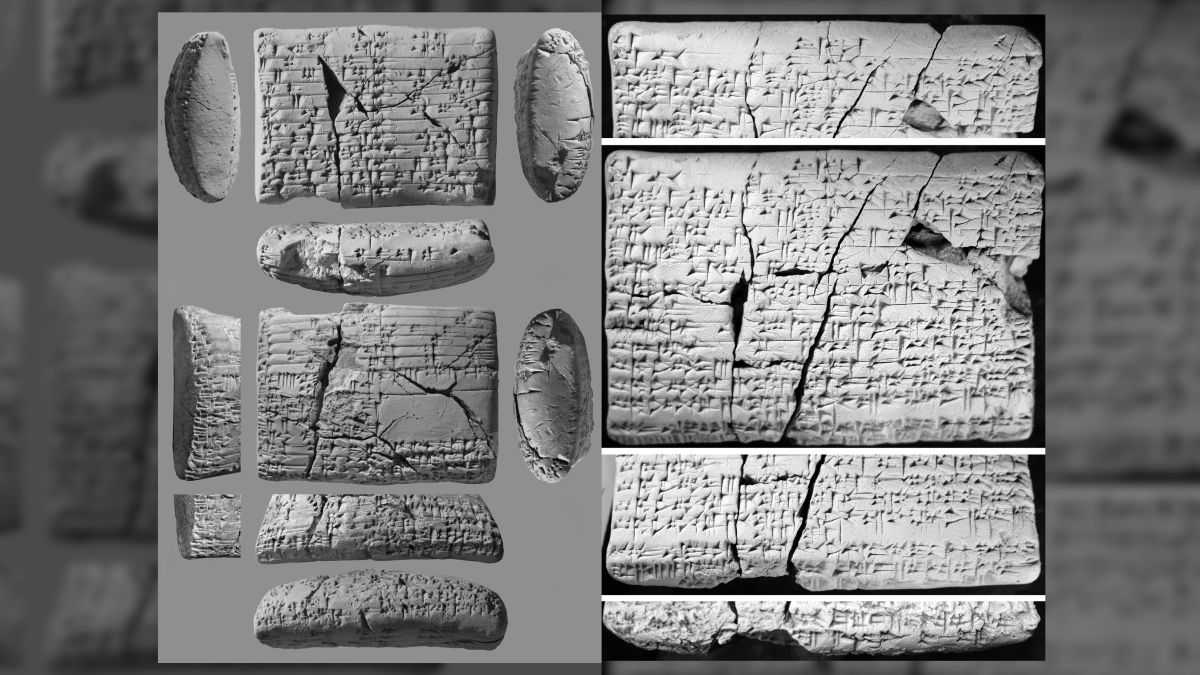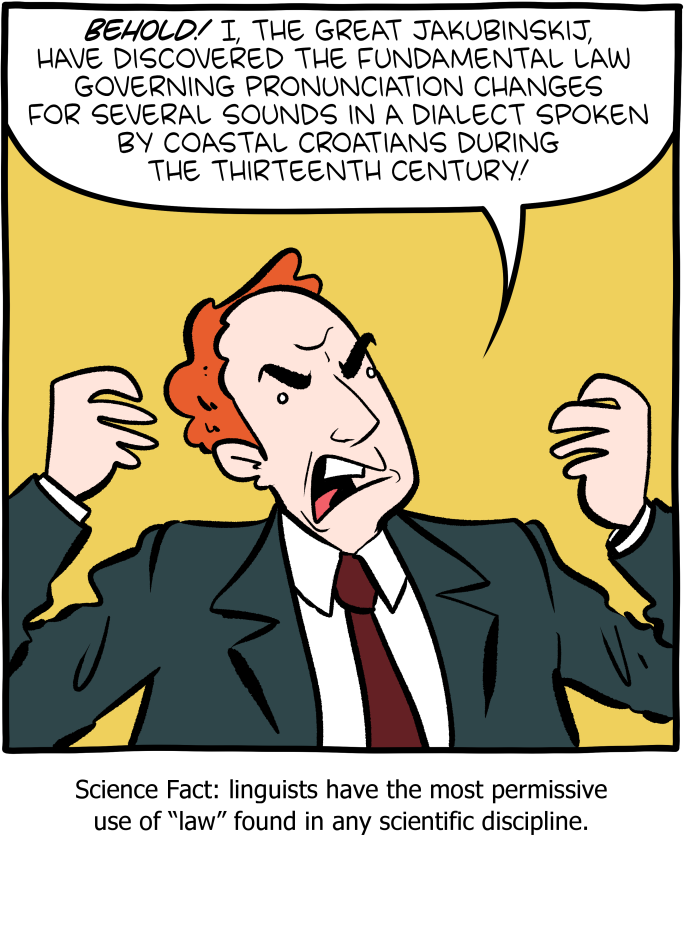Digitization of Babylonian fragments
Once again, DH to the rescue:
AI Deciphers Ancient Babylonian Texts And Finds Beautiful Lost Hymn
Eat your heart out, ChatGPT.
Tom Hale, IFLScience (2/7/23)
It used to be that paleographers and philologists labored mightily trying to piece together bits and pieces of old manuscripts, using only their own mental and visual powers. Now they can call on AI allies to provide decisive assistance.
Researchers have crafted an artificial intelligence (AI) system capable of deciphering fragments of ancient Babylonian texts. Dubbed the “Fragmentarium,” the algorithm holds the potential to piece together some of the oldest stories ever written by humans, including the Epic of Gilgamesh.
Read the rest of this entry »
Have a good / great (rest of [your / the]) day
In the "old days", when you were departing from a store or other premises, people would say to you, "have a good day". In some cases, they might replace "good" with "great". Within the last year or two, however, I've been hearing people who work in shops more and more say "Have a good rest of the day" or "Have a good rest of your day". When I first heard such goodbyes, especially the latter variant, I thought they were unnatural. I am still somewhat taken aback when I hear this sort of adieu, but since so many shopworkers and other people are saying it to me nowadays, I am gradually beginning to take it for granted, and am almost tempted to say it to others instead of "goodbye" once in a while, but it will take some time, maybe years, before I grow accustomed to saying it myself.
Read the rest of this entry »
How language shapes the way we think and speak
An eloquent cri de coeur:
How Can China’s People Demand Freedom if We Can’t Even Say It?
Mengyin Lin, NYT (Feb. 10, 2023)
Notice that she speaks in the first person plural and has some very thought-provoking things to say about the recent Chinese protests in favor of freedom, such as:
The demonstrations are best remembered for the blank sheets of paper held by many protesters. It was a clever way to avoid trouble: making a statement without actually saying anything. But to me those empty sheets also visually, and literally, represented how my generation is losing its voice, perhaps even control of its own language.
The Communist Party’s monopoly on all channels of expression has helped prevent the development of any resistance language in Mandarin, especially since 1989, when the brutal military suppression of the Tiananmen Square student movement demonstrated what happens to those who speak out. If language shapes the way we think,* and most people think only in their own language, how can China’s youth conjure up an effective and lasting resistance movement with words that they don’t have?
*Please take a look at this and other links provided by the author.
Read the rest of this entry »
Toxic bird pits?
David Leonhardt, "Did He Say 'bird'?", NYT 2/10/2023:
As President Biden was reciting a list of bipartisan accomplishments during his State of the Union address this week, he seemed to use a phrase that I had never heard before: toxic bird pits.
Was it some major news story that I had missed while on leave over the past few months? Or was it the latest Biden malapropism, destined to dominate post-speech commentary? I tried to figure out the answer by typing the words into Google and Twitter, but they offered no clarity. Google had nothing for me. A Twitter search yielded dozens of people tweeting a version of “toxic bird pits???” and not much else.
Read the rest of this entry »
Flexible length of Chinese words
This instructional video is a bit long (11:05) and is delivered in a seemingly childlike manner, but it is full of useful information. So, if you've ever wondered why so many Chinese words have both one syllable and two-syllable versions, this is worth a watch.
Read the rest of this entry »
Buddhist enrichment of Sino-Japanese vocabulary
I'm often surprised by the number of terms in modern Japanese that have their roots in ancient Buddhist usage. Some of the most common ones are introduced in this article by Brendan Craine from The Japan Times (2/2/23):
"The Buddhist terms that find their way into everyday conversation"
A good example is aisatsu あいさつ / 挨拶:
[noun] a greeting, a salutation, a polite set phrase
[noun] an address given at an official function or ceremony
[noun] greetings or respects such as given at holidays or funerals
[verb] to greet, to say hello, to address
This derives from ichiaiissatsu / いちあいいっさつ / 一挨一拶: "dialoging (with another Zen practitioner to ascertain their level of enlightenment)" (source).
Read the rest of this entry »
Taylor Swift fanilect
By now I must have listened to Taylor Swift's "Blank Space" a hundred times. The first fifty times I heard a crucial line in it as "Got only Starbucks lovers" or "Not only Starbucks lovers", and it was driving me crazy because I couldn't make sense of it. Sometimes I forced myself to believe that she was saying "Got only starcrossed lovers", but that didn't make sense either. Then, on December 4, 2014, I read Mark Liberman's "All the lonely Starbucks lovers" on Language Log, and I learned — much to my astonishment — that, according to the lyrics, she was supposedly saying — repeatedly in the song — "Got a long list of ex-lovers". Still today, after listening to the song and watching the video countless more times, plus reading the printed lyrics, I hear her sing "Got / Not only Starbucks lovers", never "Got a long list of ex-lovers".
Thus I am simultaneously assailed by multiple Taylor Swift mondegreens and polyphonic earworms ("trouble, trouble, trouble; shake, shake, shake it off").
Read the rest of this entry »
"On Dialogic Speech"
Thanks to yesterday's post on "Linguistic Laws", I spent a few minutes looking into the life and works of the Russian linguist Lav Jakubinskiy (or Lev Yakubinsky, or whatever transliteration you prefer). I don't think I've heard of him before — but a couple of things (and not Jakubinskiy's Law) convinced me that I should have. The main thing was what I learned about his 1923 work О диалогической речи ("On Dialogic Speech"). I haven't been able to find any online scans of the Russian original, but there's a 1997 PMLA article by Michael Eskin that offers some translated fragments along with a "Translator's Introduction", and a 2016 book, also due to Eskin, that offers a larger translated sample.
Read the rest of this entry »
Open / close sesame
Marvelous post in Pinyin News by Mark Swofford:
Pinyin, US trademark law, and myths about Chinese characters
芝麻 vs. ZHIMA
Posted on Sunday, February 5, 2023
The entire post, and the legal ruling that it reports, are of such importance in clarifying the interrelationships among language, transcription, and translation, especially for those who have an interest in the combination of legalistic and linguistic reasoning, that I will quote the better portion of it, starting from the beginning:
The Mandarin word for “sesame” is zhīma (written “芝麻” in Chinese characters). That’s all the Mandarin anyone will need to know for this post. But if any of you non-Mandarin speakers are curious, an approximate pronunciation would be the je in jerk + ma (with the a as in father).
OK, let’s get into it now.
Read the rest of this entry »
Artificial Intelligence in Language Education: with a note on GPT-3
Registration is open for Artificial Intelligence in Language Education
- Eleni Miltsakaki, Department of Computer & Information Science, University of Pennsylvania
- Gareth Roberts, Department of Linguistics, University of Pennsylvania
- Per Urlaub, Global Languages, Massachusetts Institute of Technology
- Eva Dessein, Global Languages, Massachusetts Institute of Technology
- Iryna Kozlova, Graduate School of Education, University of Pennsylvania
Read the rest of this entry »
Canaanite in the news again

The 4,000-year-old tablets reveal translations for 'lost' language, including a love song.
(Image credit: Left: Rudolph Mayr/Courtesy Rosen Collection. Right: Courtesy David I. Owen)
From:
Cryptic lost Canaanite language decoded on 'Rosetta Stone'-like tablets
Two ancient clay tablets from Iraq contain details of a "lost" Canaanite language.
By Tom Metcalfe, Live Science, Jan. 30, 2023
Read the rest of this entry »

